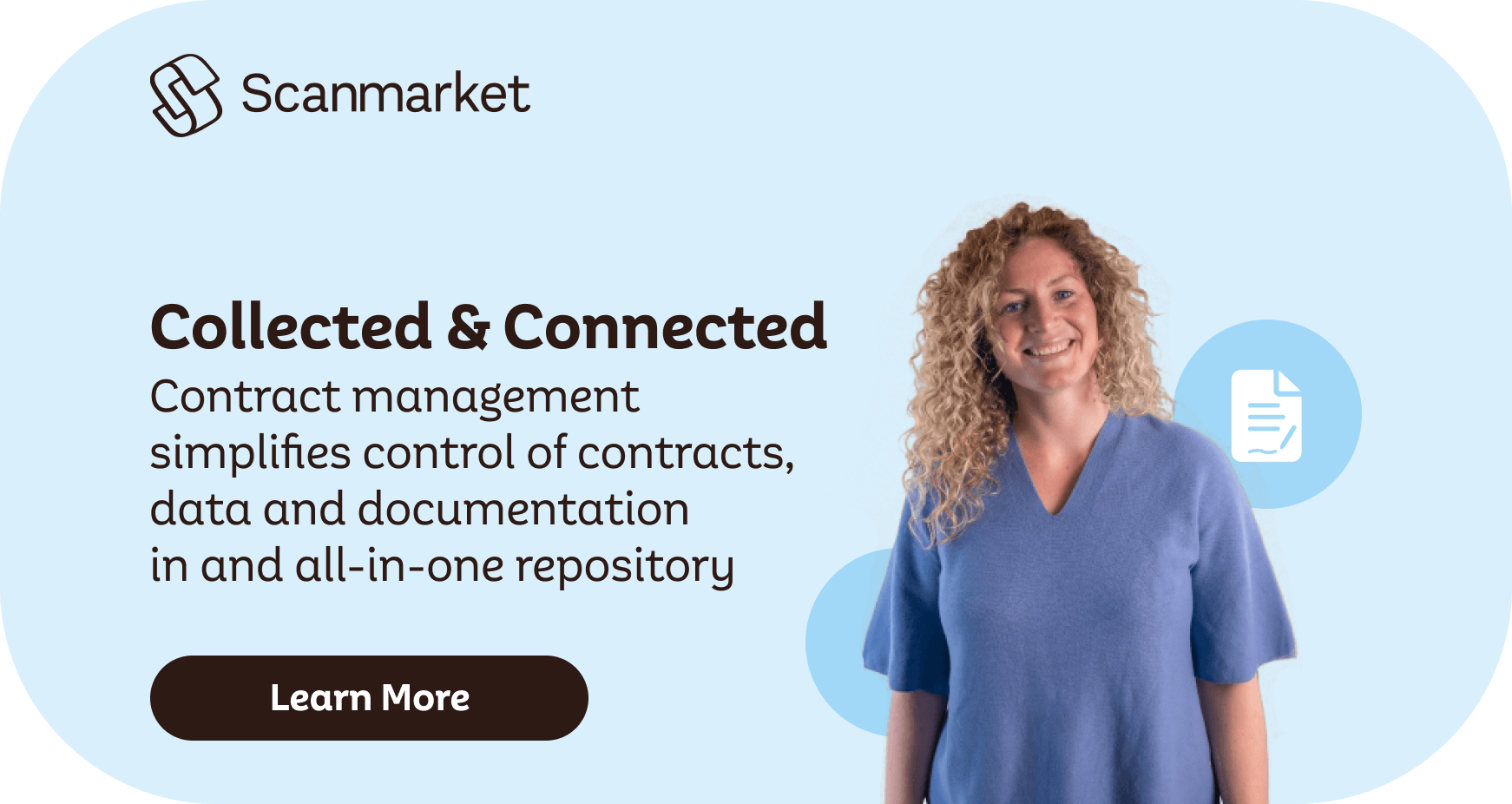In today’s nonstop business world, procurement processes have the need to be efficient, and have the potential to literally make or break an organization. Timely procurement is not only about getting the right good or services, is also about how quickly you can source them.
At the hearth of these procurement processes lies the procurement cycle, which encompasses all the steps from identifying a need to fulfilling it. One often underestimated aspect of this process by many organizations is contract management, which is a crucial factor in streamlining procurement cycle times.
In this blog post we will dive deep into the importance of contract management and how it profoundly impacts the procurement cycle.
Contract Management Positively Influences Procurement Cycle Times
Contract management is the process of creating, negotiating, executing, and overseeing contracts between an organization and its suppliers. These contracts define the terms and conditions of the relationship and serve as the legal framework governing the procurement process. Contract management positively influences each stage of the procurement cycle in various ways:
1 – Enhanced Efficiency in Need Identification
Effective contract management begins with understanding the organization’s requirements and objectives. By maintain a comprehensive repository of existing contracts and their performance data, procurement professionals can better identify the organization’s needs. This leads to more informed purchasing decisions, reduces the time spent on market research, and ensures alignment with an organization’s strategic goals.
2 – Expedited Vendor Selection
Vendor selection is a vital step in the procurement process. Platforms such as Scanmarket provide additional modules like Supplier Risk and Performance Management, which lets organizations build a common supplier database and integrate it with a Contract Management module to access contract performance data. This integrated approach can help organizations cut their procurement cycle times by as much as 50%.
3 – Accelerated Contract Negotiation
Contract management streamlines contract negotiation processes by providing standardized templates and predefined clauses from the contract library. This not only accelerates the negotiation phase but also ensures that the terms are consistent and compliant with organizational policies.
4 – Streamlined Ordering and Receiving
Once the contract is finalized, it can be integrated with procurement systems, reducing the time required to create purchase orders. This integration facilitates a seamless flow of goods and services, ensuring timely deliveries and greatly reducing the risk of any delays.
5 – Efficient Payment Processes
Contract management systems can help organizations track milestones, deadlines, renewals, and payment terms. This proactive approach ensures that invoices are processed promptly, avoiding late payments and any potential incurring penalties and disputes.
How Contract Management Streamlines the Procurement Cycl
Now that we understand how contract management positively influences each stage of the procurement cycle, let’s look closely into how it helps streamline the entire process:
- Improved Visibility – Contract management provides a centralized and shared repository for all contracts, providing full visibility into all contract data. This enhanced visibility ensures a full audit trail that helps procurement professionals to make more informed decisions.
- Reduced Manual Work – Automation is a key feature of modern contract management systems. This automation significantly reduces the time and effort required to manage contracts, from document authoring, redlining, approvals, electronic signature, and commitment management through to renewal.
- Enhanced Compliance – Contract management tools can easily ensure compliance with established company policies and legal regulations. This greatly reduces the risk of any contract disputes, delays, and penalties, ultimately speeding up the procurement process.
- Data-Driven Decision Making – Contract management software generates valuable data and insights that can be used to optimize procurement strategies. By analyzing historical contract performance, organizations can make data-driven decisions that ultimately lead to faster and more efficient procurement cycles.
Real World Examples from Scanmarket Customers
To demonstrate how contract management affects procurement cycle times, let's examine a couple of real-world examples from Scanmarket's customers:
1 – Marston’s - A prominent brewery and pub operator in the UK, handles a significant volume of contracts each year, encompassing their creation, execution, monitoring, and management. To improve their management of contractual obligations, Marston's adopted Scanmarket's Contract Management solution. As a result, they have achieved enhanced efficiencies and cost savings by utilizing a centralized repository and reporting system, which offers greater transparency.
2 – Hirschmann Automotive - A leading global supplier of antenna and infotainment systems for the automotive industry required a robust authoring tool that would enable users to make the most of their Microsoft Word expertise and maintain a comprehensive history of all changes made by various parties.
Leveraging the rule-based workflow engine within the contract management application, contracts were directed to only those parties who were necessary contributors in the review and approval process.
Scanmarket centralized control and storage of all contract documents and formalized contract negotiations while tracking version history throughout the entire contract lifecycle. Tasks were automated to accelerate internal contract review with the appropriate levels of access control to records, data, and other documents.
In Conclusion
Contract management has a profound impact on how fast and efficient the procurement process runs. It does this by enhancing visibility, reducing manual work, enforcing compliance, and enabling data-driven decision-making.
Modern contract management solutions offer organizations substantial benefits, including a competitive edge, a more efficient and cost-effective procurement process, and greater agility. In this age of constant change and innovation, organizations that harness the power of contract management can optimize their procurement cycle times and, in turn, boost their overall success.













